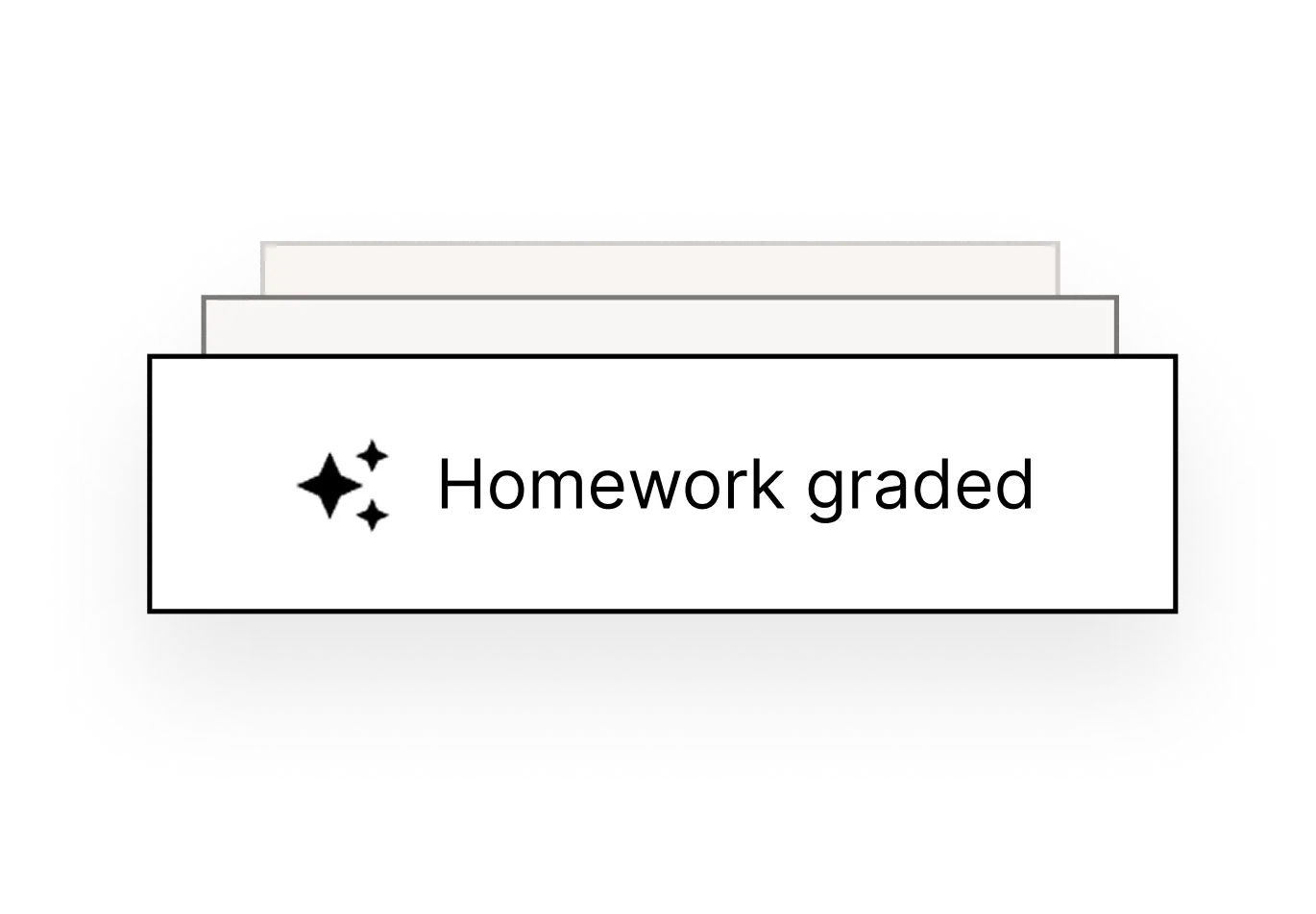Trusted by 100K+ Parents
Saxon Math
Build mathematical confidence through incremental development and continuous review.

Why Saxon Math?
Spiral Method
New concepts are introduced gradually and reviewed continuously, ensuring long-term retention and deep understanding.
Proven Results
Comprehensive

She hit the 99th national percentile! Lydia used to dislike math, but looked forward to your lessons every day. Saxon and you made all the difference.
Jennifer Quattrocchi
Homeschool Mom
Full Support for Grades 3–12
Nicole the Math Lady pairs with Saxon Math textbooks (sold separately) to provide lessons, grading, and guidance.
See below for the recommended textbook editions. If you have an earlier edition, click here for more info.








We were extremely frustrated and not sure of our direction in math and then we found YOU!!! I have seen such improvement in my daughter’s math skills and I contribute it to Nicole, Saxon and the 30 problems a day.
Victoria S
Homeschool Mom
How Nicole the Math Lady Works
Our comprehensive program provides everything you need to succeed with Saxon Math.

Video Lessons
Nicole explains each lesson clearly with step-by-step instruction that makes complex concepts easy to understand.

Online Grading
Automatic grading system saves time and provides instant feedback on problem sets and tests.
“My daughter excelled and moved up to an integrated geometry/Algebra 2 class as a freshman!”
— Victoria Zischke



Extra Practice
Math Facts That Stick
Transform math facts practice into an engaging game that builds automatic recall and confidence. Fun, fast-paced learning helps math facts stick for life.


What Nicole the Math Lady Says

Great Fit If Your Student:
Favors concise and to-the-point instruction
Learn effectively through repeated practice
Benefits from hearing concepts multiple times
Not ideal if your student gets bored with a lot of repetition
I switched my 6th grade son over to Saxon in October, and we signed up for your videos and online grading... and OH MY, both my son and I are still doing a happy dance about it! THANK YOU for your game-changing help!!
Alicia Clark
Homeschool Mom

Find the Perfect
Starting Point
Moving from a different curriculum? Take our placement test to determine exactly where your student should begin their Saxon Math journey.
Frequently Asked Questions
Students who are the most successful with Saxon Math include those who:
- thrive with routine and structure.
- prefer a straight-forward approach.
- like repetition in their instruction.
- need a lot of review.
- do better with written work.
Saxon Math might not be the best fit for students who are visual/spatial learners, get bored with repetition, need a lot of conceptual explanation or struggle with doing a lot of problems every day.
You can read more from the publisher of Saxon Math, Houghton Mifflin Harcourt, here.
- Saxon Math 5/4 - 3rd edition
- Saxon Math 6/5 - 3rd edition
- Saxon Math 7/6 - 4th edition
- Saxon Math 8/7 - 3rd edition
- Saxon Math Algebra 1/2 - 3rd edition
- Saxon Math Algebra 1 - 3rd edition
- Saxon Math Algebra 2 - 3rd edition
- Advanced Math - 2nd edition
We also support the following books from the "School Line" of Saxon Math:
- Algebra 1 - 4th edition
- Geometry – 1st edition
- Intermediate 3 - 1st edition
- Intermediate 4 - 1st edition
- Intermediate 5 - 1st edition
- Course 1 - 1st edition
- Course 2 - 1st edition
- Course 3 - 1st edition
In order to benefit the most from our program, you will need the editions listed above. However, if you only have access to an earlier edition, it is possible to still utilize most of our video lessons with the use of a correlation sheet. Correlation sheets can be found in the Materials and Downloads section of each course.
(PLEASE NOTE: Online Grading will NOT work with anything other than the editions listed above.) We have correlation sheets for the following earlier editions:
1st Editions
- Saxon Math 5/4
- Saxon Math 6/5
2nd Editions
- Saxon Math 5/4
- Saxon Math 6/5
- Saxon Math 7/6
- Saxon Math 8/7
- Saxon Math Algebra 1/2
- Saxon Math Algebra 1
- Saxon Math Algebra 2
3rd Editions
- Saxon Math 7/6
There is also a line of Saxon Math textbooks that were written specifically for the school system. The teaching, pacing and approach remain largely the same though they do contain more word problems, logic-based questions and real-world applications. They also have a distinctly more "schoolish" feel to them. For a list of books in the school versions, go here.
To compare the two lines....
- Saxon Math 3 and Intermediate 3 are fairly different
- Saxon Math 5/4 and Intermediate 4 are 90% the same
- Saxon Math 6/5 and Intermediate 5 are 90% the same
- Saxon Math 7/6 and Course 1 are 90% the same
- Saxon Math 8/7 and Course 2 are 90% the same
- Algebra 1/2 and Course 3 are completely different
- Algebra 1 (3rd ed) and Algebra 2 (3rd ed) are completely
Neither line is Common Core aligned though they both meet all state and national standards.
- Warm-up section can be graded by our online grading system.
- Fact Practice is graded by our system
- New Concept is taught by Nicole in a pre-recorded video.
- A second video walks through some of Nicole's own practice problems.
- Practice Problems in the book can be graded by our system.
- Mixed Review in the book can be graded by our system.
- Ask yourself why you want to switch? If your student's current math curriculum is not a good fit, then, yes, you should consider switching. But, if it's working well, then you might want to consider that a victory and leave it alone. (Switching curriculum is one of the biggest reasons of math gaps.)
- Stop to identify what's not working about your current math curriculum. Now ask yourself if Saxon Math will create the same issue or solve that problem.
- For instance, if BJU is not working because your student complains that it is boring to look at, Saxon will likely not improve things.
- On the other hand, if your student is doing Math-U-See and is not doing well with it's mastery approach, Saxon might be a better option.
- Consider where your student is in their math journey and assess whether it's wise to switch them at this time. Saxon changes its formatting between 3rd and 4th grades and again between Pre-Algebra and Algebra 1. These create natural breaks that might allow for a smoother change. Additionally, Saxon has a unique high school path which means it's more complicated to jump in/out of it in the later years.
- If you decide to make a switch, always start with the placement test. No two math curriculums line up perfectly and it's important to start your student in the correct book. You can find the placement test for Saxon here. And, keep in mind, it's more than okay to go back a grade level. If the goal of switching curriculums is to create a better math experience for your student, then you increase the chances of that happening if the new math curriculum meets them where they are.
Nicole The Math Lady does not sell textbooks. You can purchase them from the publisher or a 3rd party bookseller here.
Get started for free
No pressure. No risk. Just a better way to learn math, starting today.